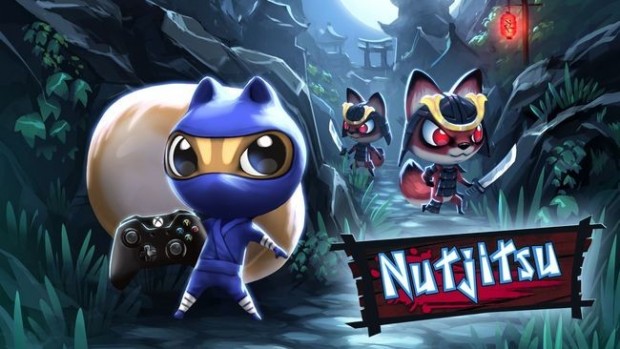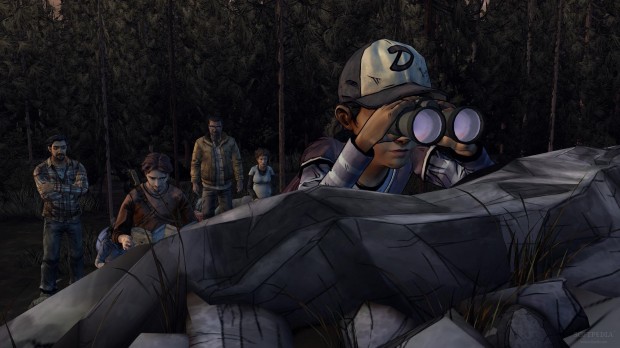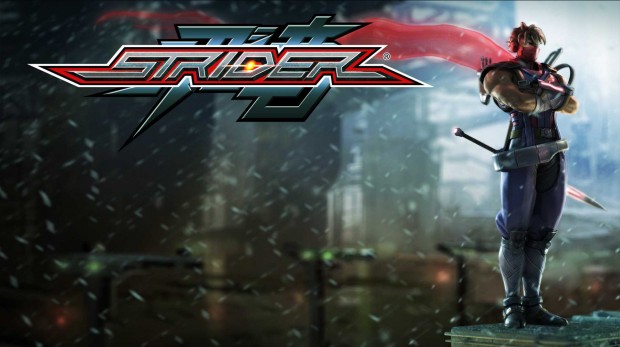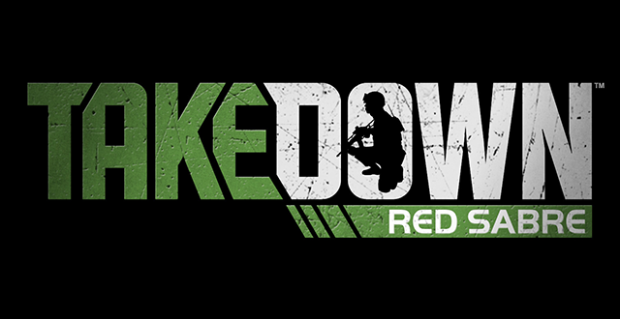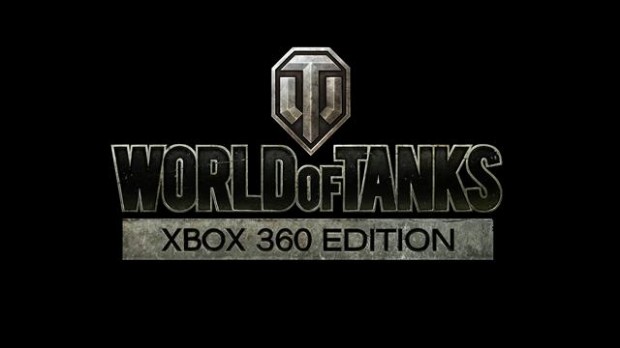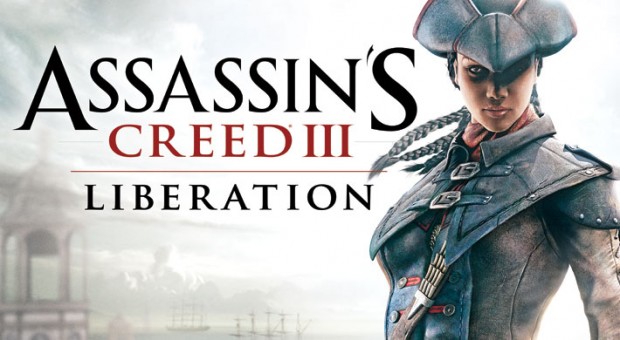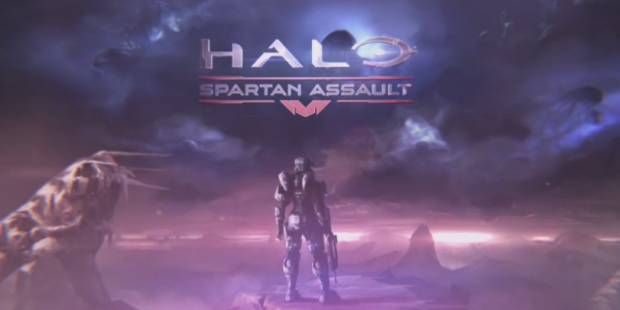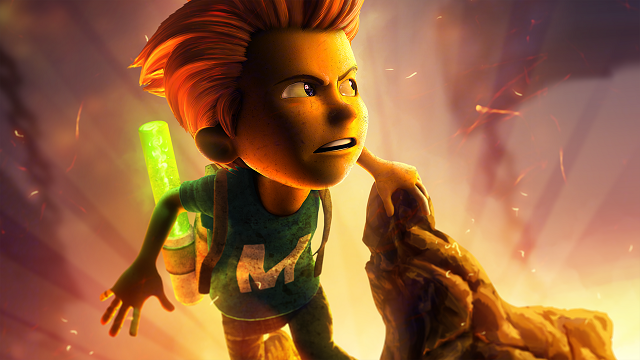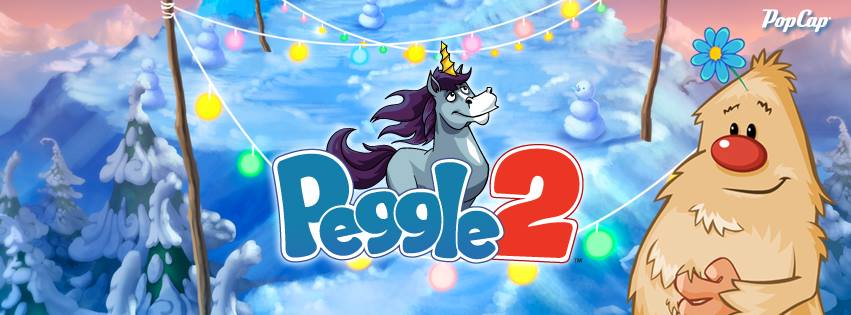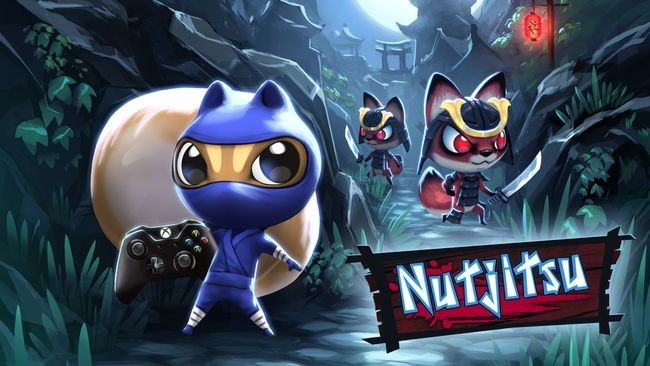 12 years ago
12 years ago
Nutjitsu review (Xbox One)
Nutjitsu was developed and published by Ninjabee. It was released May 8, 2014 on Xbox One for $6.49. An Xbox One copy was provided for review purposes.
Nutjitsu is, quite simply, a mobile game. It has all the makings of a great iOS or Droid game: its top-down repetitiveness is perfect for wasting time in a doctor’s waiting room or in line for a cup of coffee. Nutjitsu is simple and fun for five minutes at a time, but this version XBLA Fans reviewed is not for mobile devices; it’s for Xbox One, which is the game’s ultimate downfall.
Nutjitsu is clearly inspired by Pac-Man. The player, assuming the role of an adorable ninja squirrel, must collect acorns of different colors that denote different point values all while avoiding equally adorable ninja foxes. The game is divided into two modes. Mission Mode requires the player to complete random objectives on a randomly selected map, such as collecting a certain amount of scrolls or collecting acorns of a certain color. Survival Mode simply asks the player to survive as long as possible without being attacked by the foxes and while racking up a high score. Various power-ups are thrown into the game, like speed boosts and freeze blasts, to spice thing up and give you the upper hand. The game doesn’t boast much more than that, leading to a lackluster experience.
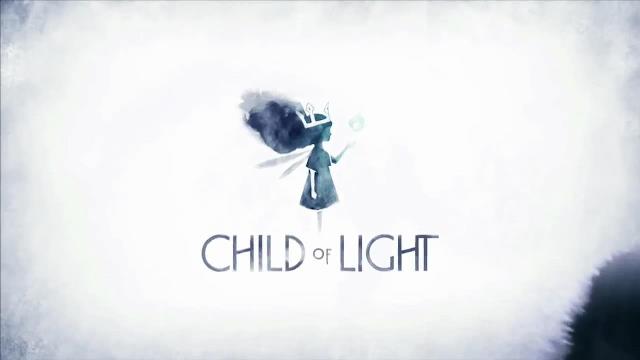 12 years ago
12 years ago
Child of Light review (Xbox One)
Child of Light was developed by Ubisoft Montreal and published by Ubisoft. It was released April 30, 2014, on the Xbox One and Xbox 360 for $14.99. An Xbox One copy was provided for review purposes.
Child of Light is a game that isn’t afraid to take what it likes. Ubisoft Montreal’s pastiche borrows liberally from the JRPGs of yesteryear in paying homage to them. Its roughly 12-hour adventure is filled with bits from its source material: Final Fantasy VII‘s sword gigantism, Final Fantasy X‘s in-battle character swapping and a sidekick that acts like a more palatable version of Ocarina of Time‘s Navi and looks like a Dragon Quest Slime, to name a few.
The story also feels like it was cut from the same cloth of many seminal RPGs. It revolves around a group led by the titular Child of Light (Aurora) on a quest to save the fairy tale world of Lemuria from the Black Queen, who has pilfered the land’s sun, moon and stars and appropriated its throne for herself. Child of Light‘s pitting of good-natured youngsters against an evil covering the world in darkness is nothing new, and its world, while beautiful, can be less than exciting to traverse. You might not then expect a game aspiring to be an indie love letter to the JRPG composed by the blockbuster shooter production crew at Ubisoft Montreal to keep you happily adventuring along. Thanks to a sublimely addictive combat system, pretty artwork and a delightful cast of characters, however, you’ll continue to gravitate towards this quest until you reach its conclusion.
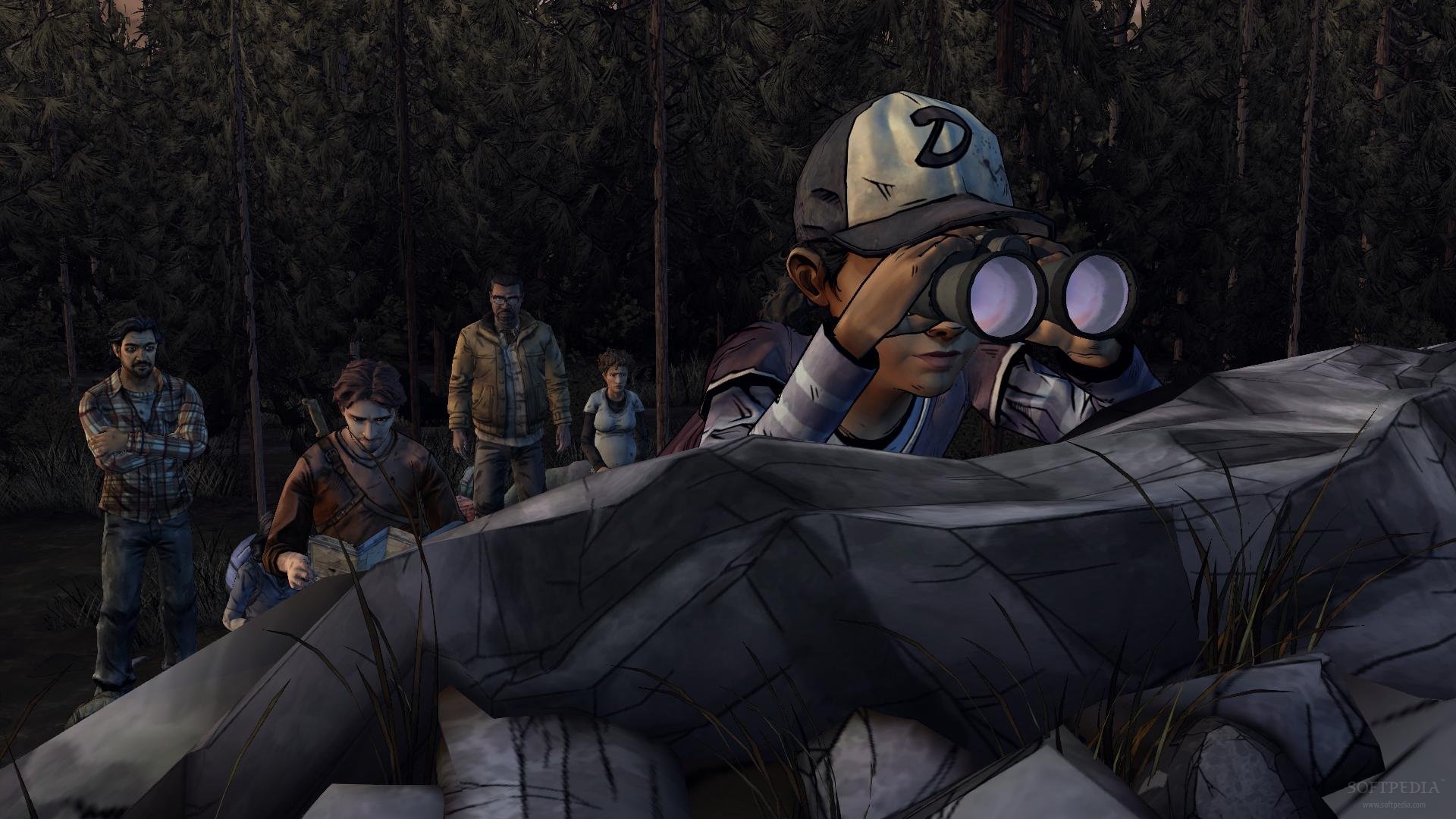 12 years ago
12 years ago
The Walking Dead Season 2: A House Divided review (XBLA DLC)
The Walking Dead Season 2 was developed and published by Telltale Games. It was released March 5, 2014 for $4.99.
So far, The Walking Dead Season 2 has been off to a slow start. The first episode spent a lot of time separating itself from the original series, while setting the stage for the current one. It was a lot of build-up that ultimately had little immediate payoff. Thankfully Episode 2: A House Divided picks up right where the last left off, allowing the story to kick itself into full gear. We finally see the direction the series is going, as Clementine’s new group is forced to deal with a mysterious new villain, Carver. Telltale delivers the experience we’ve come to expect from The Walking Dead – one full of tough choices, rough consequences, and a good helping of zombie slaughter.
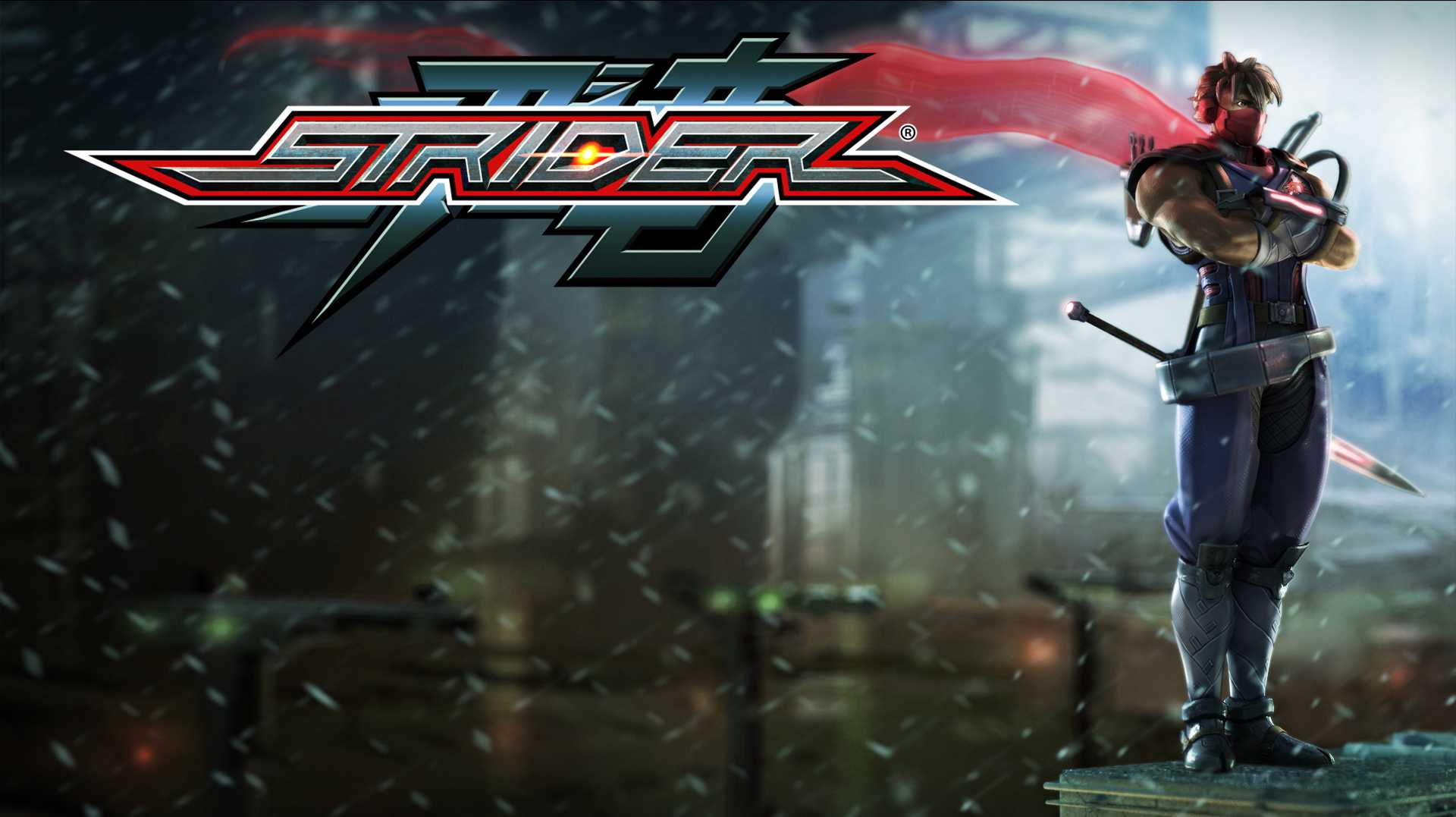 12 years ago
12 years ago
Strider review (XBLA)
Strider was developed by Double Helix Games and published by Capcom. It was released on February 19, 2014 on Xbox Live Arcade and Xbox One for $14.99. An Xbox 360 copy was provided for review purposes.
Strider has had a long history in gaming, despite not having too many games. First arriving in arcades in 1989, Strider‘s fast-paced ninja gameplay spawned an NES port and numerous knock-offs. Despite being well-received, the game didn’t get a true sequel until 1999’s Strider II. Outside of being a playable fighter in the Marvel vs. Capcom series, protagonist Strider Hiryu hasn’t been in a game for over 10 years.
Now the franchise has finally been awoken from its slumber with Strider, a reboot that re-tells the original game’s story. Taking place in the year 2048, the game opens with an organization of high-tech ninjas known as Striders sending their best agent, Hiryu, on a deadly mission. Armed with his deadly plasma Cypher and loads of ninja skills, Hiryu is tasked with assassinating the the city of Kazahk’s evil dictator, Grandmaster Meio. The adventure is great at delivering fast-paced action, at least when there aren’t too many speed bumps in the way.
Takedown: Red Sabre review (XBLA)
Takedown: Red Sabre was developed by Serellan Studios and published by 505 Games. It was released February 22, 2014 on Xbox Live Arcade for $14.99. A copy was provided for review purposes.
One of the unfortunate side effects of having so many triple-A, blockbusting first person shooters over the past few years has been the rapid and almost complete decline in a once popular sub-genre; that of the tactical shooter. The last, best examples of those kind of games on Microsoft’s Xbox 360 console was probably Rainbow Six: Vegas and its excellent (albeit a little too similar) sequel. In answer to the subgenre’s disappearance, Serellan Studios set out to fill the void with Takedown: Red Sabre, a game that promises the same rock hard difficulty and tactical scope as past tactical shooters in the mould of the Rainbow Six and Delta Force series and the older Ghost Recon games. The question is, has this emergent studio done enough to impress the kind of die hard fans who occupy this space?
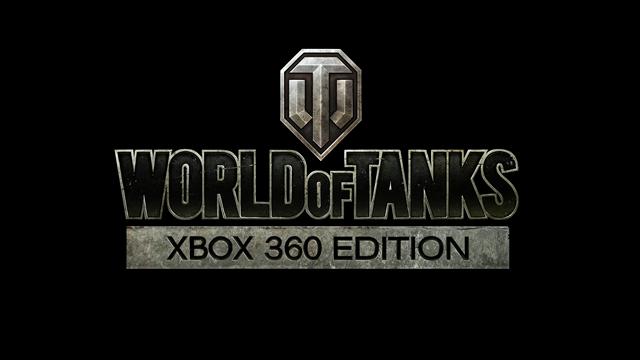 12 years ago
12 years ago
World of Tanks: Xbox 360 Edition review (XBLA)
World of Tanks: Xbox 360 Edition was developed by Wargaming.net and published by Microsoft Studios. It was released on February 12, 2014 following an initial beta release and is free-to-play. Additional in-game resources were provided for review purposes.
A low sun sets over an open field marked by hedges in autumnal colours of yellow, orange and red. The ground is marked only by the brown furrows of a farmer’s plough and the occasional tuft of unkempt grass. A boggy lake glistens to the left, and the only sound – aside from silence – is that of crickets calling out from the reeds. Suddenly, a red diamond appears on your mini-map. A German light tank speeds across the field, and the shots of your comrades begin to ring out as each takes aim and fires. You lead the target by a few metres and make a final adjustment to the height of your shot. You fire. The German tank explodes in a shower of hot metal. Welcome to World of Tanks: Xbox 360 Edition. Read More
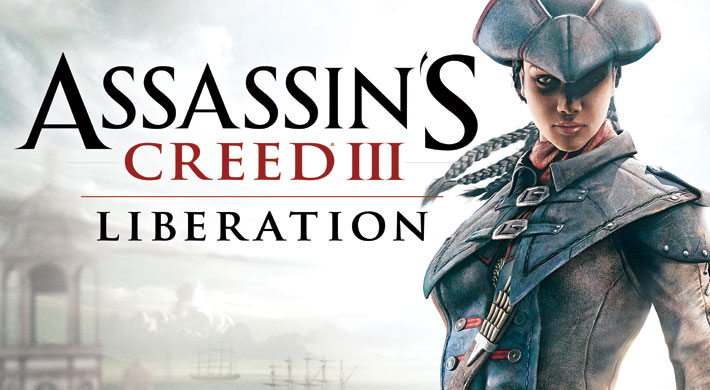 12 years ago
12 years ago
Assassin’s Creed: Liberation review
Assassin’s Creed Liberation HD was developed by Ubisoft Sofia and published by Ubisoft. It was released January 15, 2014 on Xbox Live Arcade for $19.99. A retail copy purchased by XBLA Fans was used for review purposes.
The Assassin’s Creed series is like an addition. Once you play one, you have this inner compulsion to play them all. It doesn’t matter which game got you hooked, you find yourself needing to complete them all. The polished gameplay and incredibly engaging story of this saga keeps you coming back, even though with each installment you say “I don’t think I can do another one”.
Yet you do. With each game you tell yourself you can put the controller down, but each time you play the next installment. But one game was out of many people’s hands. Assassin’s Creed: Liberation was originally released in October 2012 as a PlayStation Vita exclusive. But most of us didn’t own a Vita. We played our games on a 360, a PlayStation 3, or a Windows PC. The Vita was just too darn expensive to merit the price.
But 2014 brings Liberation to current gen systems in a big way. Finally everyone can experience the story of Aveline, set in the Louisiana swamplands. And brother, it is glorious.
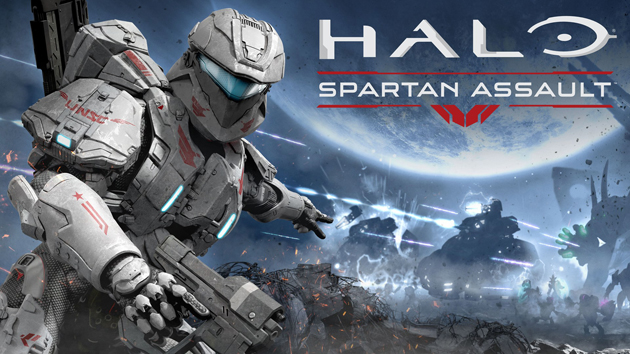 12 years ago
12 years ago
Halo: Spartan Assault review (Xbox One)
Halo: Spartan Assault was developed by Vanguard Games and published by Microsoft Studios. It was released December 22, 2013, on the Xbox One for $14.99. An Xbox One copy was provided for review purposes.
Halo. It’s a name that carries a lot of weight in the gaming world. The series has spawned countless hits and established itself as a legendary franchise that will no doubt be around for another decade. Now, Vanguard Games has stepped up to the plate to deliver a fresh take on the Halo series. Ditching the standard FPS formula, we are instead treated to a top down view of the universe as a twin-stick shooter. With this new style comes new Spartan protagonists, Sarah Palmer and her partner Davis, who you control across various battles against covenant forces throughout the galaxy.
The Halo universe is full of stories to tell and it’s great to see developers able to step away from Master Chief, but still deliver a fast-paced, action-oriented Halo title. With that in mind, Halo: Spartan Assault is fun, and refreshing to play. It features a lengthy campaign, running players through dozens of missions spanning the time between Halo 3 and 4, and with the upgrade from smartphone to console it packs a new multiplayer mode where 2 players fight together against hordes of Flood in a desperate attempt to survive. Unfortunately, alongside everything Halo: Spartan Assault does well, it struggles to overcome its own glaring weaknesses.
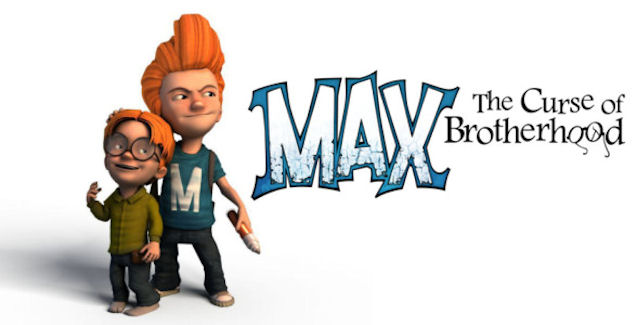 12 years ago
12 years ago
Max: The Curse of Brotherhood review (Xbox One)
Max: The Curse of Brotherhood was developed by Press Play and published by Microsoft Game Studios. It was released on December 20, 2013 for $14.99. An Xbox One copy was provided for review purposes.
Max: The Curse of Brotherhood is a 2.5D puzzle platformer in which players take on the role of Max, a young boy who uses a curse on his annoying brother, Felix, and then has to rescue him when the curse turns out to be real. Players are equipped with a handy marker that can alter the environment, helping them to solve interesting puzzles in their quest to save Felix from the evil Mustachio.
 12 years ago
12 years ago
Peggle 2 Review (Xbox One)
Peggle 2 was developed by PopCap Games and published by Electronic Arts. It was released December 8, 2013, on the Xbox One for $11.99. A copy was provided for review purposes.
With the follow-up to its 2009 smash hit Peggle, PopCap Games has delivered a quality game that not only challenges the player, but provides hours of entertainment at the same time. Fans of the original will be happy to know the development team didn’t tinker with what was already a great formula. Instead, PopCap has expanded upon its existing efforts, and by doing so, has made Peggle 2 an extremely fun and addictive title for the Xbox One.
With over 120 levels to play through, Peggle 2 has tons of content to offer eager peg-smashers. PopCap has also introduced new masters that enhance the experience by drastically altering the way the game is played, making each master feel unique. A fun and simple online mode has also been added to the mix, allowing for players to quickly jump into games and compete against others, trying to achieve the highest score with a 10-ball limit set in place. The ease with which you drop into matches is the biggest draw, and is something that’s seen throughout the game, as accessing content is generally fast and snappy.

